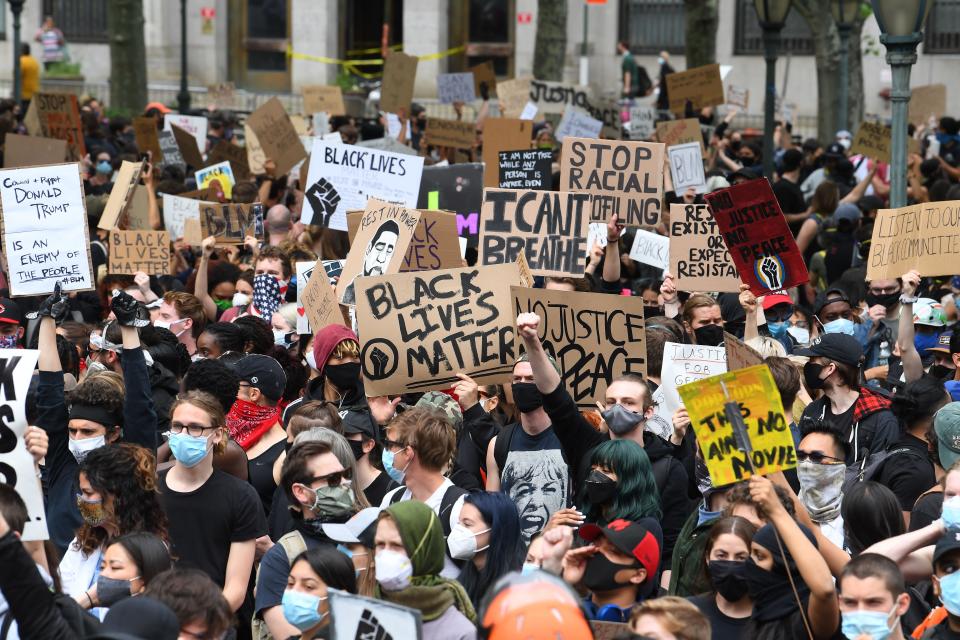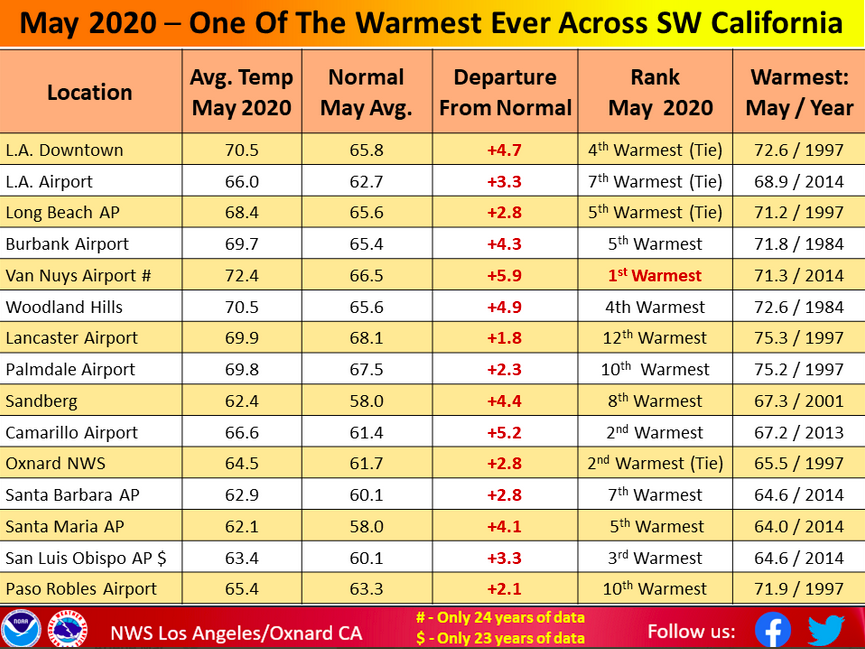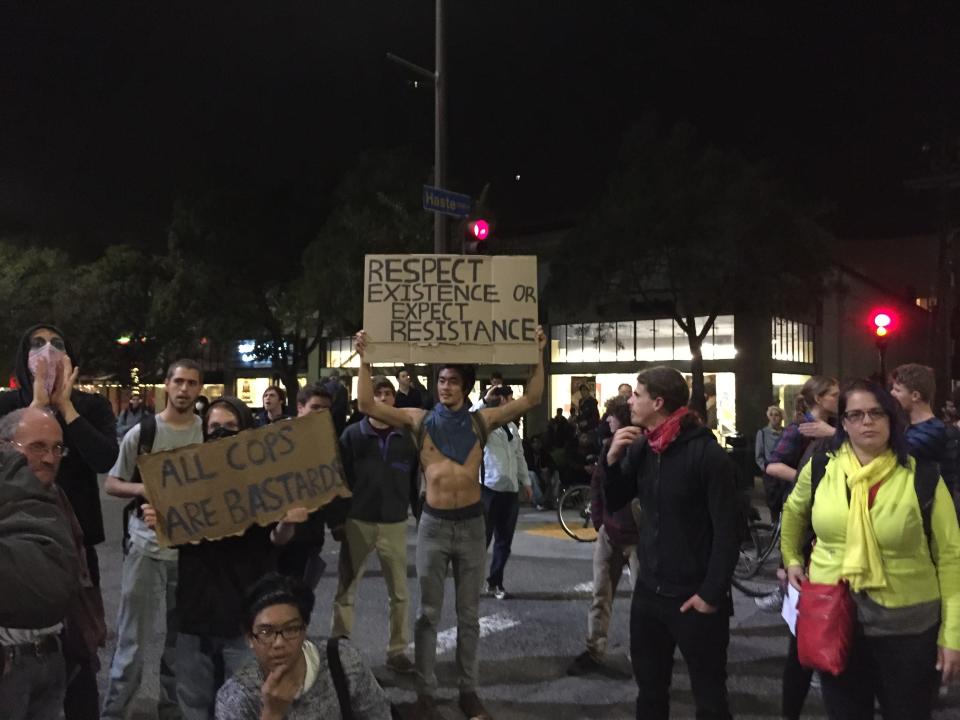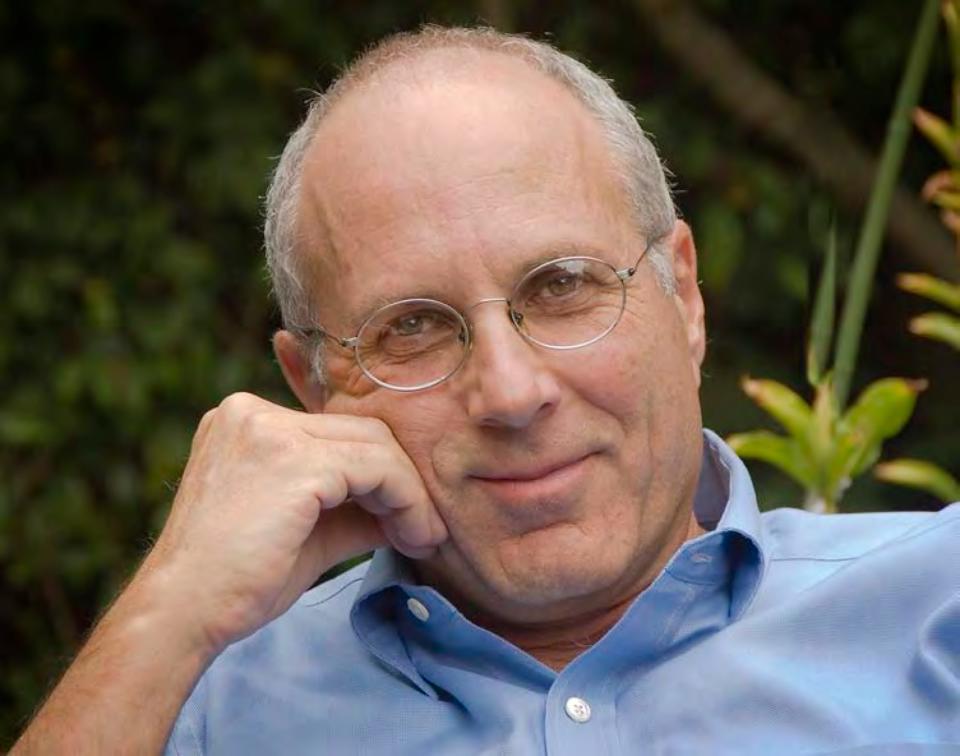In CA: Sheriff tells people they're welcome not to use 911; waiting on 300 million masks
The state waits on hundreds of millions of N95 masks. And House Speaker Nancy Pelosi calls on President Trump to be a "healer in chief." Plus: I talk with the attorney who successfully argued to the state's high court that video and other electronic records should not come with an out-of-reach price tag.
It's Arlene Martínez with Tuesday's news to know.
But first, Tulare County Sheriff Mike Boudreaux addressed a series of now-deleted tweets in which he expressed frustration over nationwide protests and riots.
"For all those people hating cops across the nation," the most controversial one said. "Just leave your name and address at your local police agency and let them know whenever you dial 911 or need emergency police services you no longer wish for them to respond to your calls for help."
In Calfornia brings you top stories and commentary from across the USA TODAY Network and beyond. Sign up for free delivery right to your inbox.
Let's start with more top headlines:

Sacramento County declared a state of emergency Tuesday afternoon as protests sparked by George Floyd's death by a Minneapolis police officer continue across the country.
In Los Angeles County, officials continued a 6 p.m. curfew for the third day as protests across the region continued; 2,500 people were taken into custody between Friday and Tuesday morning, the LAPD told the LA Times. As curfew neared, the gatherings remained strong.
In the Bay Area, thousands of protesters marched and rallied in front of city halls for the fifth straight day.
Want more Golden State news? Sign up for our California newsletter here.
Nursing home residents and workers represent 40% of the nation’s death toll attributed to the coronavirus, an analysis of state data gathered by USA TODAY shows.
For the second time, a company with a $1 billion state contract to deliver 300 million N95 masks has failed to obtain safety certification.
A Palm Desert bar whose owner wrote political messages on its roof and reopened in defiance of state orders sustained severe fire damage early Tuesday.
An Imperial County county correctional facility preemptively tested all of its inmates, the only in the state to do so, according to an analysis by the Desert Sun.
Pelosi condemns use of tear gas to clear church path
House Speaker Nancy Pelosi was one of several elected officials to condemn law enforcement officers using tear gas and rubber bullets to break up a peaceful protest at Lafayette Park near the White House.
Reporters at the scene described it as one of mayhem. President Trump would use the route to walk to nearby St. John's Episcopal Church, where he held up a Bible. Trump's appearance came after he said he would use military intervention if needed to quell the protests.
Pelosi called on Trump to be a "healer in chief and not a fanner of the flame."
She said protesters were "beaten" so Trump could walk to the church. "That has no place and it's time for us to do away with that. A time to heal,' she said.
National Parks, the hottest May, evictions and the next stimulus bill

Yosemite remains closed but other national parks have reopened. Here's what to know if you visit.
Van Nuys had its hottest May ever recorded, and several other SoCal cities experienced near-record highs.
Temporary bans on evictions set to expire in late May have been extended to late July in many cities.
Your next stimulus check could be higher, but really, the proposal by House Democrats for the next stimulus package is more a starting point for negotiations.
What else we're talking about

Their lacrosse season was cut short, like the rest of their senior year activities, but these triplets at least, have had each other.
Bring your money and your masks: The Cabazon Band of Mission Indians has reopened Fantasy Springs Resort Casino in Indio. It follows Spotlight 29, Tortoise Rock, both Agua Caliente casinos in Palm Springs and several others that reopened last month.
Kids, teens and adults looking for ways to learn and talk about race have lots of good options. Here's a good place to start.
Blackout your Instagram if you feel moved to, then do the harder work (Opinion).
Transparency files: Governments can't charge for editing out 411 from public records

In December 2014, hundreds of people showed up to demonstrations in Berkeley to protest the decisions not to indict the officers involved in the deaths of Eric Garner and Michael Brown.
Garner died in July 2014 after New York City Police Officer Daniel Pantaleo placed him in a chokehold, a move prohibited by the department. Video captured Garner face down as he said "I can't breathe" 11 times. Five years later, Pantaleo was fired but faced no criminal charges.
A month later, Brown was fatally shot by Ferguson (Missouri) Police Department Officer Darren Wilson. A grand jury opted not to indict Wilson, who resigned from the force not long after the shooting.
Several protesters who attended the Berkeley demonstrations claimed police injured them, which prompted the San Francisco chapter of the National Lawyers Guild to request footage from body cameras worn by officers at the protest.
The city of Hayward and its police department charged the Guild nearly $3,000 for the footage.
The American Civil Liberties Union of Northern California and the Law Offices of Amitai Schwartz sued, alleging agencies can't charge for redacting information — in this case, billing the labor costs for editing out portions of the video police determined were "confidential."
Last week, the California Supreme Court ruled against Hayward, agreeing the costs of redacting information couldn't be transferred to the public.
Rachel Lederman, the attorney who requested the videos on behalf of the Guild, called the ruling an important victory for transparency.
"Body cameras can't fully serve their function of promoting police accountability if it is prohibitively expensive for the public to get access to the videos,” she said in a release announcing the decision.

I talked to Schwartz, an attorney in Emeryville, more about the case. Over his 45 years in law, Schwartz has handled several California Public Records Act cases and numerous cases for the ACLU, including ones involving police accountability.
We talked via email. Answers have been edited for length and clarity.
Q: How did you get involved with this particular case?
A: In 2015, the ACLU asked me if I would represent the National Lawyers Guild, San Francisco Bay Area Chapter after it had been charged close to $3,000 by the City of Hayward for its labor costs in taking out certain portions of police body camera videos of police actions at a street demonstration.
Q: What did the state Supreme Court decision say, in essence?
A: The California Supreme Court interpreted the California Public Records Act, which is the state equivalent of the Freedom of Information Act. On May 28, the court issued its unanimous opinion, saying that the CRPA does not permit public agencies to charge requesters for the labor costs of taking confidential information out of electronic records, including police videos, before copies are released to the public and news media.
Q: Why was the ruling so significant?
A: If California agencies had been allowed to charge labor costs for removing information from public records, records including videos would be inaccessible because most persons, and most organizations and new media, would not be able to afford the costs charged. A long video, for example, could come to many thousands of dollars, if not more. This would have destroyed public access to most public records in California, at least those that include any confidential information.
Q: Another law that went into effect in 2019, SB 1421, was also designed to improve access to police records. Will the Hayward ruling have any impact on that law?
A: It will have an enormous effect because most SB1421 records will contain some confidential information. Now, requesters won't have to pay for the labor costs of taking out the confidential information.
Q: Law enforcement in California historically has had great latitude when it comes to keeping records out of public view. Is that changing or getting better?
A: The landscape has changed over the past several years. Records of police agencies are far more open now and public accountability has gotten much better due to work of the Legislature and this court decision.
Q: The Hayward ruling seems particularly relevant today, as protests take place across the state, from the stay-at-home gatherings to the ones in response to George Floyd's death by a Minnesota police officer. Will this ruling make it easier to get information on the response and see who was involved?
A: Yes, it should. (Author note: Body camera footage from the officers involved in Floyd's death has not been released).
Q; Why is there such resistance to releasing the videos? Law enforcement has said the cameras are there to protect the officers as much as the public, providing less of a 'they said, they said,' back-and-forth situation.
A: In the Hayward case, the resistance was not to the idea of releasing the videos. Resistance came in the form of deciding who pays the labor costs involved. In effect, though, imposing excessive labor costs and charging requesters would put up a barrier to disclosure.
Q: Do you have any thoughts or reactions when you see what's going on following Floyd's death, in California or across the rest of the country?
A: It's tragic. This has been going on during all the years I've practiced law. Mostly it was out of sight of the public, but not always. I think accountability has improved, but I am not optimistic that things will change much unless public attitudes change substantially and police reform becomes more than aspirational. And, of course, rooting out structural racism is essential.
By the way, if you're planning to request electronic records, the Electronic Frontier Foundation recommends including language like this: “Pursuant to NLG vs. Hayward, S252445 (May 28, 2020), government agencies may not charge requesters for the cost of redacting or editing body-worn camera footage.”
In California is a roundup of news from across USA TODAY Network newsrooms. Also contributing: San Francisco Chronicle, Los Angeles Times, Sacramento Bee.
This article originally appeared on USA TODAY: California, N95, Trump, George Floyd, public records: Tuesday news

